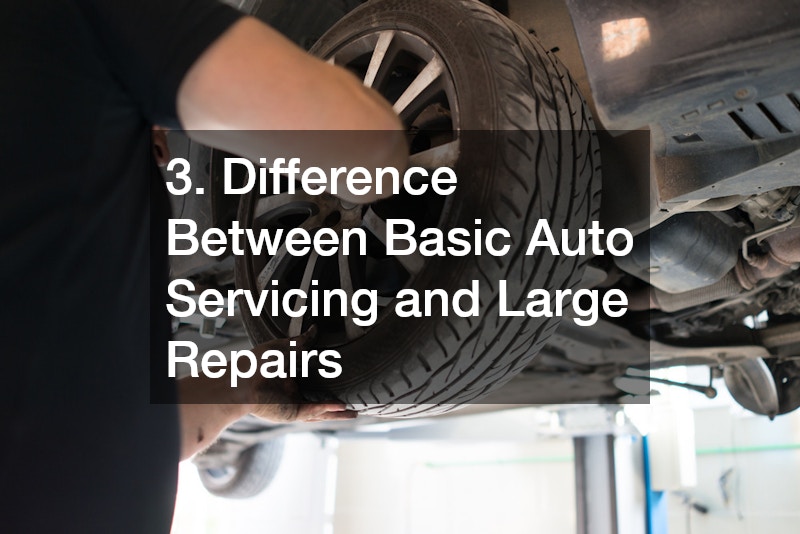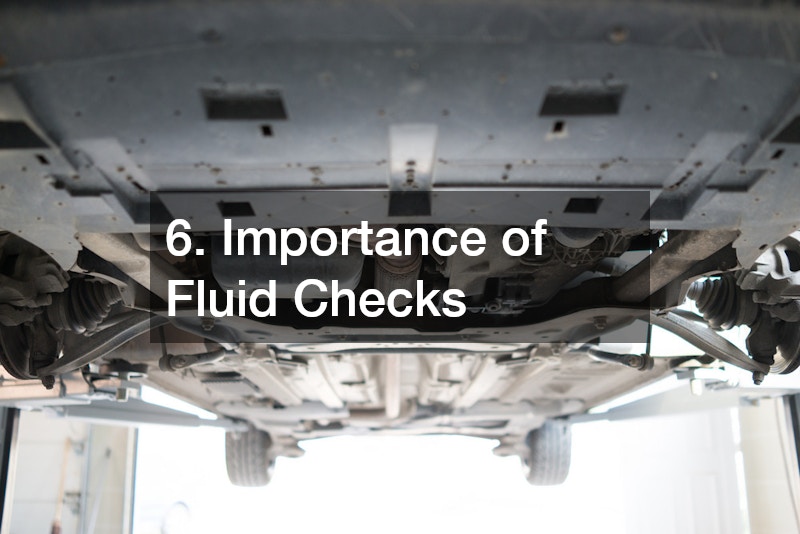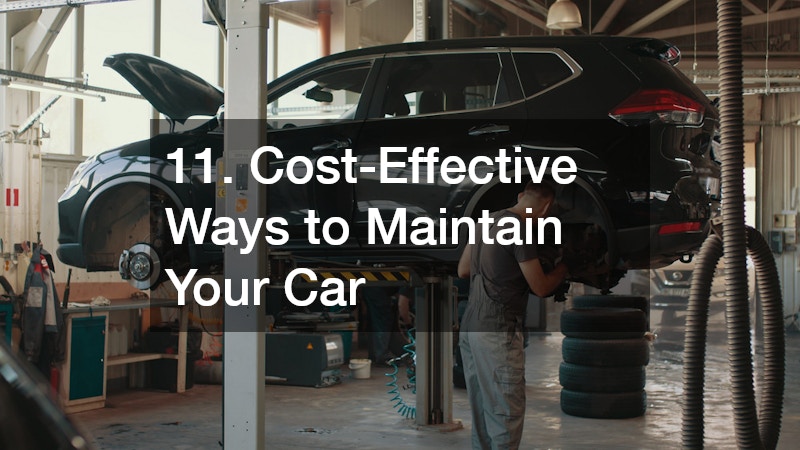When it comes to maintaining your vehicle, auto servicing plays a crucial role in keeping your car running smoothly. Car servicing involves regular maintenance tasks that help prevent major issues from arising in the future. By understanding the importance of basic servicing and knowing when to consider it, you can save both time and money on larger repairs down the road.
1. What is Basic Servicing?
Basic servicing refers to the routine maintenance tasks that are essential for keeping your car in optimal condition. This includes oil changes, filter replacements, tire rotations, and fluid checks. By staying up to date with basic car servicing, you can ensure that your vehicle operates efficiently and prolong its lifespan.
Regular servicing is crucial for detecting potential issues early on and addressing them before they escalate into larger problems. By following the manufacturer’s recommended maintenance schedule, you can prevent costly repairs and breakdowns in the future. Neglecting servicing can lead to decreased performance, reduced fuel efficiency, and even safety hazards.
2. Importance of Regular Maintenance
Regular basic servicing is essential for keeping your vehicle in top condition and preventing costly repairs. By following a maintenance schedule, you can ensure that your car operates efficiently and safely. Basic auto servicing helps maintain the resale value of your vehicle and prolong its lifespan.
Commonly neglected areas of basic car servicing include checking and topping up fluids, inspecting brakes, and monitoring tire pressure. By paying attention to these areas, you can avoid potential issues and keep your car running smoothly. Neglecting these maintenance tasks can lead to more significant problems down the road.

3. Difference Between Basic Auto Servicing and Large Repairs
Basic servicing focuses on preventive maintenance tasks that help keep your vehicle in good condition and prevent major issues. Large repairs, on the other hand, involve fixing significant problems that require time and money to address. By understanding the difference between the two, you can avoid costly repairs.
While basic auto servicing involves regular maintenance tasks like oil changes and tire rotations, large repairs may include brake repair, transmission repair, or windshield replacement. Basic service is more affordable and less time-consuming compared to large repairs, making it a cost-effective option for car owners. By staying up to date with basic service, you can minimize the need for major repairs.
4. When to Consider Basic Car Servicing
There are several signs that indicate your car needs basic auto servicing, such as strange noises, poor fuel economy, or dashboard warning lights. If you notice any of these symptoms, it’s essential to schedule a maintenance appointment at your local auto repair shop. Basic auto servicing should be performed regularly according to your vehicle’s manufacturer guidelines.
Frequency of basic car servicing depends on factors like mileage, driving conditions, and the age of your vehicle. By following the recommended maintenance schedule, you can ensure that your car stays in top condition and avoids major repairs. Basic service is an investment in your vehicle’s longevity and performance.
DIY basic servicing can be an option for car owners who are knowledgeable about automotive maintenance tasks. However, professional servicing offers the expertise and equipment needed to perform thorough inspections and catch potential issues early on. By choosing professional servicing, you can enjoy peace of mind knowing that your vehicle is in good hands.
5. DIY vs Professional Servicing
Deciding between DIY and professional servicing depends on your comfort level with automotive maintenance tasks and the complexity of the job. While DIY servicing can save you money, it may not always be the best option for more complicated repairs. Professional servicing at a local auto repair shop ensures that your vehicle receives expert care and attention.
Pros of DIY servicing include cost savings, convenience, and the satisfaction of working on your vehicle. However, DIY repairs can be time-consuming and may require specialized tools or equipment. Professional servicing provides peace of mind knowing that your car is in the hands of trained technicians who can address any issues effectively.
By choosing professional servicing for more complex repairs or diagnostic checks, you can ensure that your vehicle is well-maintained and safe to drive. Professional technicians have the expertise and knowledge to identify issues early on and recommend necessary repairs. For routine maintenance tasks like oil changes or tire rotations, DIY servicing can be a cost-effective option.

6. Importance of Fluid Checks
Fluid checks are a crucial part of servicing that involve monitoring and topping up essential fluids in your vehicle. This includes engine oil, coolant, brake fluid, transmission fluid, and power steering fluid. By checking these fluids regularly, you can ensure that your car operates smoothly and prevent potential issues.
Neglecting fluid checks can lead to engine damage, overheating, or brake failure, compromising your safety on the road. By staying proactive with fluid maintenance, you can prevent costly repairs and maintain your vehicle’s performance. Regular fluid checks are an essential part of basic servicing that should not be overlooked.
Types of fluids to monitor include engine oil, which lubricates moving parts and prevents friction, coolant, which regulates the engine temperature, and brake fluid, which helps stop your vehicle safely. By keeping these fluids at the proper levels, you can ensure that your car operates efficiently and prolong its lifespan. Regular fluid checks are a simple yet effective way to maintain your vehicle’s health.
7. Importance of Tire Maintenance
Tire maintenance is another critical aspect of basic servicing that involves checking tire pressure, tread wear, and alignment. Regular tire rotations and alignments help promote even tire wear and improve your vehicle’s performance. By staying on top of tire maintenance, you can ensure a safer and more comfortable driving experience.
Effects of tire wear on performance include reduced traction, decreased fuel efficiency, and poor handling. By monitoring tire wear and addressing issues promptly, you can avoid safety hazards and costly repairs. Tire maintenance is a cost-effective way to prolong the life of your tires and prevent the need for replacements.
Tire shop services can help you with tire maintenance tasks like rotations, alignments, and replacements. By visiting a reputable tire shop, you can ensure that your tires are in good condition and properly inflated. Tire maintenance is essential for your safety on the road and the overall performance of your vehicle.
8. How to Check for Engine Issues
Engine issues are common problems that can affect your vehicle’s performance and efficiency. Common engine problems include misfires, rough idling, and strange noises. By paying attention to these symptoms and performing DIY engine checks, you can catch potential issues early on and address them before they escalate.
DIY engine checks involve inspecting the engine bay for leaks, unusual smells, or worn-out components. By following a checklist of inspection tasks, you can identify issues and bring them to the attention of a professional mechanic. Regular engine checks are essential for detecting problems early and ensuring that your vehicle runs smoothly.
If you suspect engine issues or notice any unusual symptoms, it’s essential to schedule a diagnostic check at your local auto repair shop. Professional technicians can use specialized tools and equipment to diagnose engine problems accurately and recommend necessary repairs. By addressing engine issues promptly, you can avoid costly repairs and keep your vehicle running efficiently.

9. What to Expect During Basic Servicing
During basic auto servicing, your vehicle will undergo a series of routine checks and maintenance tasks to ensure that it operates efficiently. This includes oil changes, filter replacements, tire rotations, and fluid top-ups. Additionally, your mechanic may identify and recommend any additional repairs or replacements needed to keep your car in top condition.
Routine checks included in basic car servicing aim to catch potential issues early on and prevent them from escalating into more significant problems. By staying proactive with maintenance tasks, you can avoid costly repairs and breakdowns. Additional recommendations provided by your mechanic can help you make informed decisions about caring for your vehicle.
10. Common Basic Servicing Mistakes
One common mistake car owners make is overlooking minor issues that seem insignificant but can lead to more significant problems over time. By ignoring warning signs or unusual symptoms, you may be putting your vehicle at risk of costly repairs. It’s essential to address minor issues promptly to prevent them from escalating.
Delaying necessary maintenance tasks like oil changes, filter replacements, or fluid checks can also lead to performance issues and decreased fuel efficiency. By neglecting basic servicing, you may be compromising your vehicle’s health and safety. Regular maintenance is crucial for keeping your car in top condition and avoiding major repairs.
Cost-effective ways to maintain your car include investing in preventive measures like auto ceramic coating, brake repair, and transmission repair. By addressing minor issues early on and staying proactive with maintenance tasks, you can save money on larger repairs down the road. Preventive maintenance is key to enjoying a reliable and safe driving experience.

11. Cost-Effective Ways to Maintain Your Car
There are budget-friendly servicing options available for car owners who want to save money on maintenance tasks. By comparing prices at different auto repair shops and tire shops, you can find the best deals on basic servicing. Preventive measures like auto ceramic coating and tire rotations can also help reduce the need for costly repairs.
Investing in used cars can be a cost-effective way to own a vehicle without breaking the bank. By shopping for quality used cars and maintaining them properly, you can enjoy reliable transportation at a fraction of the cost. Regular maintenance is essential for keeping used cars in top condition and avoiding expensive repairs.
Towing services are another cost-effective way to maintain your vehicle in case of a breakdown or emergency. By having access to reliable towing services, you can ensure that your car is safely transported to a local auto repair shop for necessary repairs. Towing services offer peace of mind knowing that help is just a phone call away.
12. How to Choose a Reliable Mechanic
When selecting a mechanic for your basic car servicing needs, it’s essential to look for certain qualities that signify expertise and professionalism. Qualities to look for in a mechanic include certifications, experience, and customer reviews. By choosing a reliable mechanic, you can ensure that your vehicle receives the care and attention it deserves.
Trust and communication are key factors in building a lasting relationship with your mechanic. By establishing open lines of communication and being transparent about your vehicle’s needs, you can build trust and confidence in your mechanic’s abilities. A reliable mechanic will listen to your concerns and address them promptly and effectively.
Regular diagnostic checks at a trusted auto collision center can help detect potential issues early on and prevent major repairs. By scheduling routine diagnostic checks with your mechanic, you can stay ahead of maintenance tasks and enjoy peace of mind knowing that your vehicle is in top condition. Choosing a reliable mechanic is essential for maintaining your car’s health and performance.
13. Benefits of Regular Diagnostic Checks
Regular diagnostic checks are essential for detecting potential issues early on and preventing costly repairs. By scheduling routine diagnostic checks at your local auto repair shop, you can stay ahead of maintenance tasks and address any issues promptly. Early detection of problems can save you time and money on repairs down the road.
Long-term savings on repairs can be achieved by staying proactive with maintenance tasks and addressing issues early on. By investing in regular diagnostic checks, you can catch minor issues before they escalate into major repairs. Diagnostic checks offer peace of mind knowing that your vehicle is in good condition and safe to drive.
By staying up to date with basic service and scheduling regular diagnostic checks, you can enjoy a safe and reliable driving experience. Preventive measures like oil changes, fluid checks, and tire rotations can help prolong the lifespan of your vehicle and avoid costly repairs. Regular maintenance is key to maintaining your car’s health and performance.
In conclusion, basic servicing plays a crucial role in maintaining your vehicle’s health and performance. By staying proactive with maintenance tasks and understanding the importance of regular diagnostics, you can avoid costly repairs and breakdowns. Investing in preventive measures and choosing a reliable mechanic are essential steps towards enjoying a safe and reliable driving experience.



